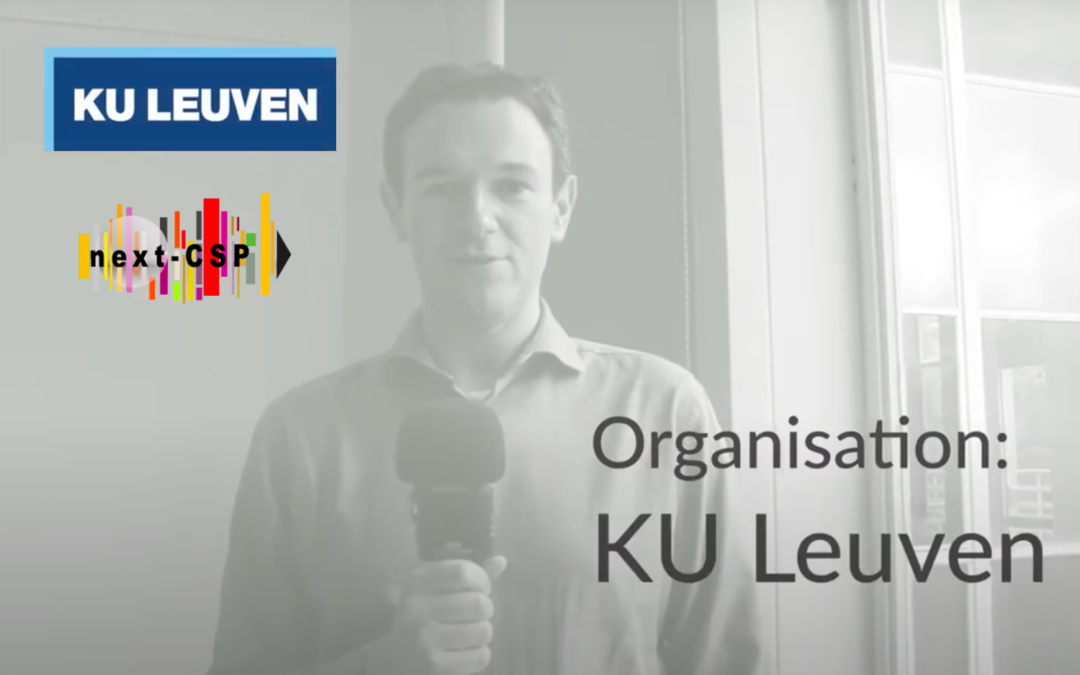Discover the people behind Next-CSP in our interview series in video! Meet Raf Dewil from the University of Leuven (KU Leuven), Belgium with 6 questions and answers about his role in the project, the challenges and the next steps.
You can also find all the partners interviews in the Communication materials section of the Next-CSP website.
Can you tell us a bit about yourself?
I’m Raf Dewil, Professor in chemical engineering at the University of Leuven in Belgium. I’m working on environmental topics such as wastewater treatment and what is also important for this project on renewable energy: biomass, solar systems and so on.
What’s your role in Next-CSP?
Our role in the Next-CSP project will mostly be the environmental impact assessment. We’ll look at the life-cycle assessment as well as the public health effects of using the power, etc. That’s basically what we’ll be doing here.
Why did you decide to take part in the project?
It’s very relevant for us because, from an environmental perspective, renewable energy is very important. It’s in the core of the activities we’re deploying in our lab at KU Leuven.
What are the most challenging aspects of your role ?
Well, doing a life-cycle assessment is very difficult in this situation because it’s only a proof of concept. We’ll go to pilot phase, but we won’t go to industrial scale. Since it’s a very new technology, we also need a lot of new information which is not always available, such as the complete lifetime, how long the system will work, etc. So we’ll need to make good estimations to be able to deliver a very good LCA.
What success has been achieved since the beginning of the project?
Since we’re relying on the information of other partners, we need experimental results, the major part of our work will be in the last phase of the project. We’ve already worked on setting up the required software, and we’ve had some try-outs on specific components of the solar system. But most of the work still has to start.
What should be the next steps after the end of the project?
I think aspects such as life-cycle assessment are very important. In other renewable energy projects, we see that, because something is renewable, it’s not always sustainable. Therefore, it’s very important to make a full assessment of the technology rather than conclude later on that we have something that uses the sun as an energy source but consumes some other raw material that we don’t have in abundance. So it’s very important to look at all aspects involved in the technology.

